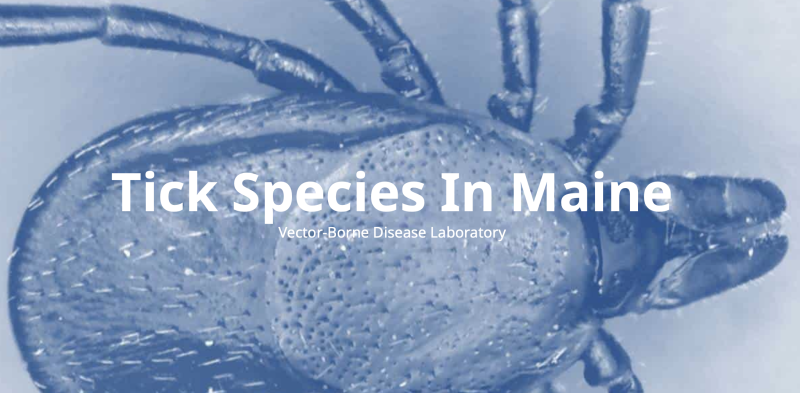MaineHealth to participate in post-treatment Lyme disease syndrome study, continues with vaccine research
MaineHealth is a collaborating institution with Tufts University School of Medicine on what it says is to be one of the largest studies of post-treatment Lyme disease in North America.
The five-year study, funded by a $20.7 million grant from the National Institutes of Health, is to research why some patients fail to fully recover from Lyme disease after standard courses of antibiotics.
MaineHealth will receive $3.1 million over the life of the grant for its role in the study.
Meanwhile, MaineHealth continues to participate in a Lyme vaccine study to help evaluate the, "Efficacy, Safety, Tolerability, Immunogenicity, and Lot-Consistency Clinical Trial of a 6-Valent OspA-Based Lyme Disease Vaccine (VLA15) (VALOR)," sponsored by Pfizer.
That study remains underway, with Midcoast residents actively involved. It consists of delivering a three-dose primary vaccination series at about 0, 2, and 5 to 9 months to participants, who then receive a booster dose about 12 months after end of primary vaccination series.
As part of the latest Lyme post-treatment research announced Oct. 17, the study team plans to recruit a total of 1,000 patients as soon as they receive their diagnosis of Lyme disease and follow them over the course of a year.
In Maine, patients will be recruited at MaineHealth physicians’ offices throughout the health system’s service area. The goal, according to an Oct. 17 news release, is to understand mechanisms causing delayed recovery after treatment and to search for biomarkers that are different in patients who go on to have persistent Lyme disease symptoms from those who fully recover from the disease.
“The study will incorporate the latest scientific advances in microbial and host genetics and measures of immune response to infection,” said Dr. Rob Smith, director of the Vector-Borne Disease Lab at the MaineHealth Institute for Research and the clinical operations lead for this study. “We’re also hoping that by following patients from their earliest diagnosis, we will create a robust data bank that will lead to new avenues for treatment of persons with persistent symptoms such as fatigue, pain and brain fog.”
Symptoms of untreated Lyme disease include a rash (often, but not always in the shape of a bullseye), fever, chills, fatigue, muscle and joint pain.
Most times, symptoms appear between three and 30 days after a person is bitten by an infected tick. If left untreated, Lyme disease can lead to arthritis, difficulty with memory and concentration, and heart problems. Treatment with antibiotics is highly effective, the release said. But five to 20 percent of people who recover from the acute symptoms of Lyme disease after treatment suffer persistent illness with symptoms similar to those of Long COVID. The causes of these post-infective illnesses are not known.
According to the Centers for Disease Control and Prevention, Maine has some of the highest rates of Lyme disease in the nation.
“The MaineHealth Institute for Research is dedicated to studying diseases that impact our community members in service of MaineHealth’s vision of working together so our communities are the healthiest in America,” said Dr. Doug Sawyer, MaineHealth Chief Academic Officer. “Tufts University School of Medicine has been a key collaborator for us in investigating causes and potential treatments for Lyme disease, and we are hopeful that this study will help get us closer to answering key questions about this increasingly common condition impacting our population.”
The study will begin enrolling patients in the spring of 2025 and will be limited to those newly diagnosed with Lyme disease so that researchers can examine the disease from its earliest stages.
























